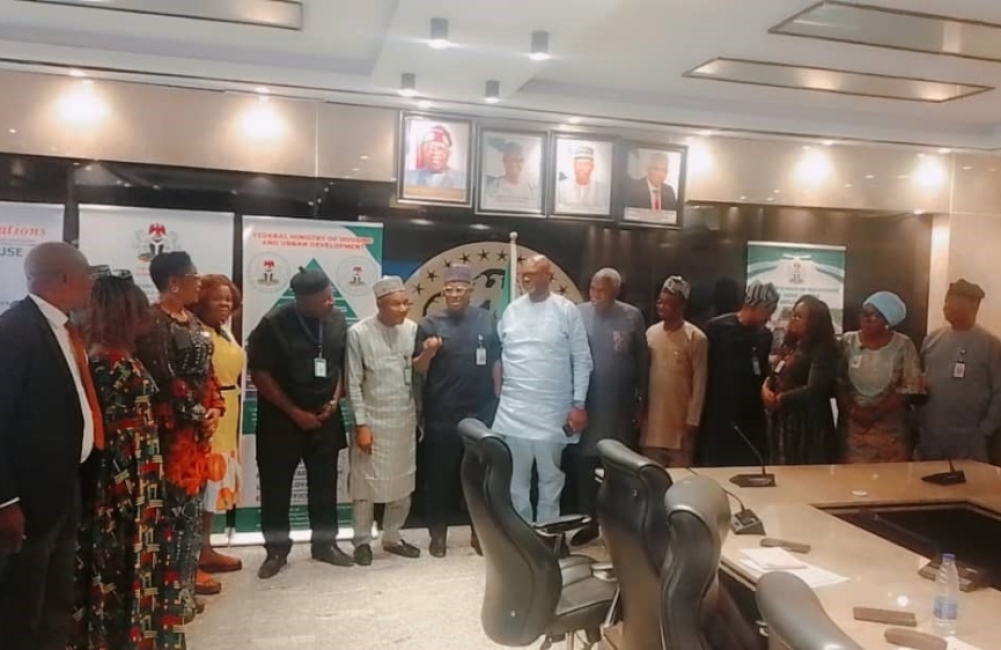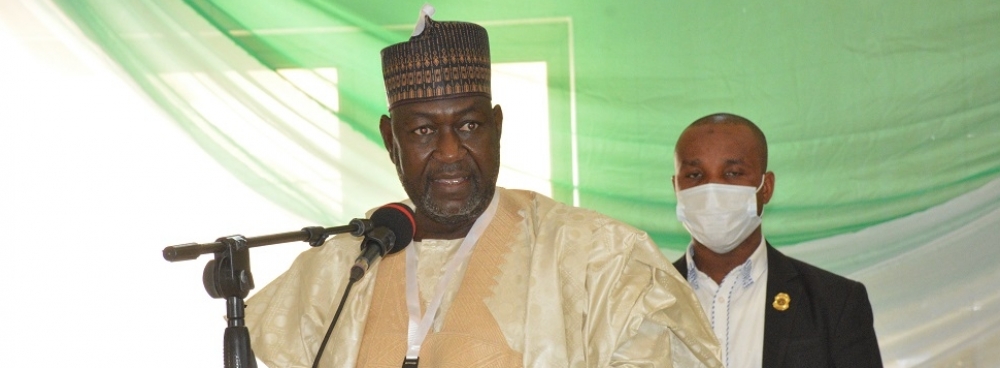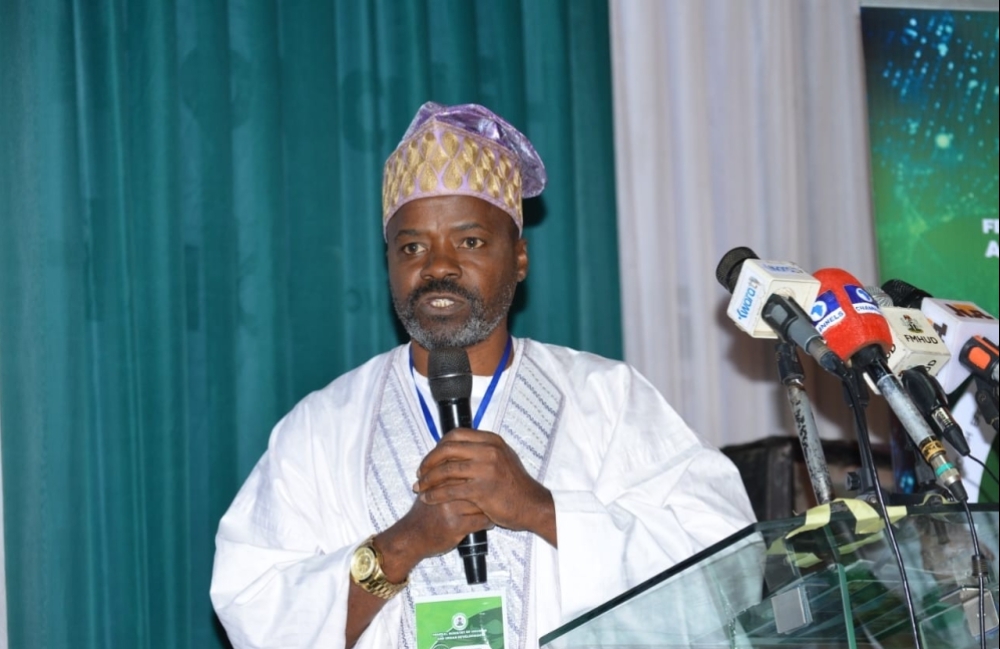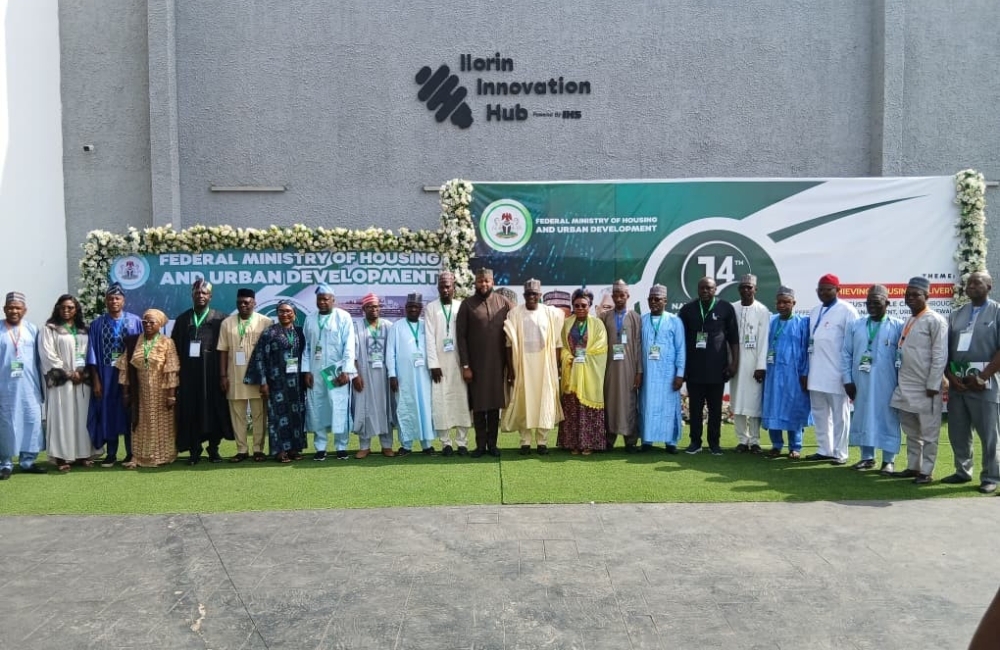Address By The Honourable Minister Of Works And Housing, H.E. Babatunde Raji Fashola, San Presented By The Honourable Minister Of State Federal Ministry Of Works And Housing, Engr. Abubaker D. Aliyu, Fnse On The Occasion Of The 9th Meeting Of The National Council On Lands, Housing And Urban Development Holding At The Kwarafa Multi-Purpose Hall, Elim-Top Suites, Rayfield, Jos, Plateau State On Thursday, 29th April, 2021.
Protocol
Permit me to begin this address by expressing my profound gratitude to the Executive Governor, His Excellency, Rtd Hon. Simon Bako Lalong, the good and homely people of Plateau State “Home of Peace and Tourism” for accepting to host us in spite of the extremely difficult socio-economic situation and the exigencies of the moment. Your Excellency, finding time from your busy schedule to grace this 9th edition of National Council Meeting on Lands Housing and Urban Development with theme “Housing Delivery in Covid-19 Era and Beyond: The Strategies for Affordability and Accessibility” is highly appreciated.
2. Permit me to also state that the choice of this year’s theme for the annual meeting is deliberate and germane to the prevailing circumstances we presently find ourselves defined by Covid-19 Pandemic. Because as a country and people, we do not exist as island from the rest of the world. Thus the impact of the Pandemic is equally felt in all sectors of the economy.
3. There is no gainsaying the fact that access to affordable human habitats (houses) by the people has been problematic over the years even during the Covid-19 Era. However, this Administration, since its inception in 2015 has been able to confront this herculean challenge head-on by rolling out concrete policies programmes and projects towards addressing effectively it.
Distinguished Guests, Ladies and Gentlemen,
4. Government is fully aware that housing challenges are prevalent in urban centres which should be understood as a symptom of urbanization. The rural areas face less challenges as underscored by a number of empty houses available for occupation. Urbanization creates excess demand which in turn creates economic problems of demand and supply that is translated into price hike and scarcity which impacts on affordability and accessibility.
5. Indeed, the difficulties of price hike are not only the inflationary pricing driven by excess demand but also extortionary payment of one, two or even up to three years rent in advance. Make no mistake, people have struggled under the burden of this extortionist rates and payment increase, in some cases, in the midst of scarcity there are empty house un-occupied for myriad reasons such as size, price, payment mode and so on and so forth. Unfortunately, the Covid-19 incidence has made the situation even more difficult for those who are in the struggling bracket. These include;
i. Employers and Employees who have lost businesses or employment and therefore income from where rent can be paid who now face the risk of eviction;
ii. Landlords/property Owners who invested before Covid-19 but who now face dwindling market demand and in some cases bank foreclosure because projected income from sale or lease has not materialized due to Covid-19 challenges, etc.
5. The scenario above are the life situations across the world including Nigeria. This makes the choice of our theme and subject a compelling national discourse for our 9th Meeting of the National Council.
Distinguished Guests, Ladies and Gentlemen
6. I will be remiss if I fail at this juncture to inform you about the laudable achievements recorded by the present Administration under the visionary and dynamitic leadership of President Mohammadu Buhari, GCFR. On our scorecard are milestone achievements in the following broad areas:
i. Support for businesses (CBN) loan re-scheduling
ii. Ease of lockdown (small businesses resumed work in July, 2020
iii. Provision of Survival Fund
iv. VAT exemption for businesses with less than N25m turnover.
7. So far, in the areas of Housing, what the Federal Government can do directly is limited compared to what States can do, and State Governments are also limited, compared to what private sector and individuals can do. Put differently, the majority of houses available for sale or rent belong to individuals and private companies compared to what States or Federal Government has available. Therefore, many of the tenants who owe rent, who face eviction or who seek to rent or buy property are dealing with private citizens or companies and less so with Government Agencies.
8. Consequently, my recommendation for improving access and affordability in the Covid-19 Era is for private companies and individuals to give back some of what they control to citizens in the way that FGN has given back to citizens some of what it controls. For example, in cases where rent of businesses or individuals are due for renewal, the private Landlords can give back, by accepting monthly, quarterly or half-yearly rent instead of one, two or three years rent in advance. The risk of defaults can be secured by Bank Guarantees or Insurance Bonds provided by the tenant. Where rent has fallen into arrears, it is possible to emulate what FGN did through the CBN to reschedule payment on loans, by re-scheduling the payment for the tenant to more affordable terms instead of pursuing eviction.
Distinguished Guests, Ladies and Gentlemen
9. Notably, all of these are matters of voluntary action by property owners and a matter of conscience. And perhaps the question to ask is whether we can do for ourselves or give to one another what we ask Government to do for us or give to us. Beyond voluntary action, there is State intervention which can facilitate access and affordability. As I have earlier pointed out, properties are not necessarily inaccessible or unaffordable because of the price alone, but more often because of the mode of payment. For example, a N10m flat would probably be affordable and accessible if payment is spread over 5 to 10 years as against having to be paid at once. The same would be one for renting a N2m per annum house if payment were made monthly in arrears or 6-month in advance, as against paying 3-years rent (amounting to N6m) in advance. These are some of the biggest hurdles that confront our people in almost all States.
10. It is therefore my candid recommendation to this Council to consider intervention by way of recommending a legislation that limits how such advance rent can be demanded or paid for renting accommodation. The sanction for non-compliance is that this would be a self-enforcing legislation in that the State apparatus such as the Courts would not help any party to such a contract get relief as it would be a patently illegal contract. This has been tried in other jurisdictions within and outside Nigeria and it has helped to improve accessibility and affordability. Many empty properties in our urban centres remain inaccessible or unaffordable because of some of these factors, and they can be unlocked if we act.
Distinguished Guests, Ladies and Gentlemen
11. Another matter for consideration of Council is the rapid deployment of co-operative housing which I presented to Council at the last meeting. I am in a position to update Council that the Federal Mortgage Bank of Nigeria (FMBN) has been the driver of the initiative at FGN Level and they have:
i. 86 Co-operatives engaged in projects
ii. N35,784Billion cumulatively approved
iii. N10.95Billion cumulatively disbursed
iv. 57 Co-operative Housing Development Loans under processing as at January, 2021.
The potential for accessibility and affordability is that:
a) Co-operative members can choose what they want and therefore design and build to fit their own individual and group budget.
b) Co-operatives can leverage their members to get group discount for purchase of building materials and the engagement of contractors to build.
Because State Governments control much more land, the use of the land as a tool to enable Co-operatives within their States to build, can be very impactful in changing the affordability and accessibility paradigms in the COVID-19 Era and beyond.
12. Finally, I could not conclude my remarks without thanking all the 34 States who have given us land for the National Housing Projects in their respective States. In the next few weeks we shall be unveiling the dedicated web portal for the sale of the buildings to Nigerians on a first come first serve basis. We urge the State Governments to alert their residents to this opportunity for interested persons to apply. Contributors to the National Housing Fund (NHF) should be able to access mortgage loans that will facilitate affordability.
Thank you.















